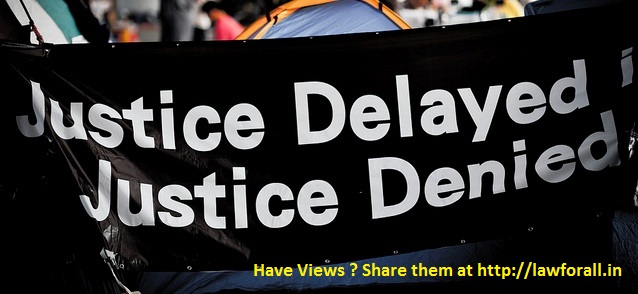General Principles
A Power of Attorney ( POA) is a well known document, and is given for many purposes in India. One of its most frequent use has been for handling Property on behalf of some one else- known as a General Power of Attorney usually.
It is a legal instrument that enables one individual, referred to as the Principal, to appoint another person, known as the Agent or Attorney-in-fact, to act on his/her behalf. The POA sets out the responsibilities of the Agent, and his authority to execute such tasks on behalf of the Principal. These can include financial transactions, property management, legal actions, and even medical decisions. The primary purpose of a POA is to facilitate the management of the principal’s affairs in situations where he/she is unable to do so themselves due to various reasons such as illness, absence, or incapacitation.
For handling court cases, a special Power of Attorney specific to the case can be made in favor of the Agent. The limited scope lessens possibility of its misuse. Usually, the Principal authorizes the Agent to represent him/her in court, attend hearings, file documents, and make legal decisions on their behalf. This is particularly beneficial for individuals who are unable to be physically present due to various reasons such as health issues, overseas travel, or other personal commitments. It avoids the Principal’s frequent appearance in court, and delays caused by the Principal’s non-availability can be avoided.
A ” Vakalatnama” can be said to be one example of such a document. However, the POA can be made in favor of someone else as well ( a relative, for example) who can in turn be authorized to appoint Lawyers for the case.
The Power of Attorney should be made out as under to ensure its validity and enforceability.
Written Document:
A PoA must be documented in writing. Oral agreements or informal arrangements are not recognized legally. The written document should clearly outline the extent of the agent’s authority and the specific tasks they are authorized to perform.
Attestation:
The POA must be signed by the Principal and should be attested by witnesses ( usually two). The Agent should also be clearly identified and clearly accept the POA. Attestation acts as a safeguard against fraud and ensures that the document reflects the Principal’s genuine intent. Further procedures such as Notarization or Apostilling are usually needed to confirm the identity of people involved.
Registration:
Registration provides additional legal validity and helps prevent disputes regarding the authenticity of the document. For example, in Property cases the registration process typically involves submitting the POA document to the local sub-registrar’s office, paying the applicable registration fees, and completing any other procedural requirements as per the state-specific regulations.
For Court cases, the POA needs to be registered with the concerned Judge within whose jurisdiction the matter falls.
Revocation:
The Principal retains the right to revoke the POA at any time, provided it is not irrevocable by nature. Revocation should be done formally by issuing a written notice to the agent and, if necessary, registering the revocation with the relevant authorities. This ensures that the agent’s authority is officially terminated and prevents further actions on behalf of the principal. Death of the Principal automatically terminates the POA.
Using POA in Court Cases
When utilizing a POA in court cases, several procedural aspects must be considered to ensure its effective use:
Presentation in Court:
The agent must present the original POA document to the court to establish their authority to act on behalf of the principal. The court will examine the document to verify its authenticity and ensure that it grants the agent the necessary powers for the case.
Scope of Authority:
The actions of the agent are confined to the powers explicitly mentioned in the POA document. Any actions taken beyond these specified powers can be challenged in court and may not be legally binding. Therefore, it is crucial to draft the POA document with clear and precise language, outlining the exact scope of the agent’s authority.
Legal Limitations:
Certain legal matters may require the personal presence of the principal, and in such cases, a POA might not suffice. For instance, personal affidavits or testimonies that require the principal’s direct involvement cannot be delegated to an agent.
Drafting a POA for Court Cases
Drafting a POA for court cases involves careful consideration of the following elements to ensure it meets legal standards and serves the principal’s needs effectively:
Clarity and Specificity:
The POA document should be drafted with clear and unambiguous language. The tasks and responsibilities assigned to the agent should be detailed precisely to avoid any misinterpretation.
Legal Counsel:
It may be useful to engage a legal expert or attorney to draft the POA so that all legal nuances are addressed. A legal professional can provide valuable guidance on the appropriate language, necessary clauses, and potential pitfalls to avoid.
Inclusions and Exclusions:
Clearly define what the agent is authorized to do and any actions they are prohibited from taking. This helps in maintaining control over the agent’s activities and prevents misuse of authority.
Contingency Plans:
Include provisions for contingencies such as the incapacity of the agent or the need for multiple agents. This ensures continuity in the management of the principal’s affairs without interruption.
Validity Period:
Specify the duration for which the POA is valid. This can be particularly important in court cases that may extend over a long period. The POA should be reviewed periodically and renewed if necessary to ensure its continued relevance.
Conclusion
A Power of Attorney is a powerful and versatile legal tool that plays a vital role in managing various affairs, including court cases. It provides a practical solution for individuals who need to delegate authority due to various reasons such as illness, travel, or other commitments. By understanding the different types of POA, the legal requirements for its execution, and its application in court cases, individuals can effectively leverage this tool to manage their legal matters efficiently.
Ensuring the POA is drafted correctly, with clear and specific language, and adhering to legal formalities such as attestation and registration, can prevent potential misuse and legal disputes. Engaging a legal professional to assist in the drafting process can provide additional assurance of the document’s validity and enforceability.
Overall, a well-executed POA can facilitate seamless legal representation and decision-making, providing peace of mind and ensuring that the principal’s interests are safeguarded effectively.
Some interesting and landmark cases on Power of Attorney are as under. Click in to know more !
Suraj Lamp & Industries (P) Ld.Tr.Dir vs State Of Haryana & Anr on 11 October, 2011
For any further queries and discussions, please see the the contact us page.
किसी भी प्रश्न और चर्चा के लिए कृपया हमसे संपर्क करें। यह पृष्ठ देखें।




